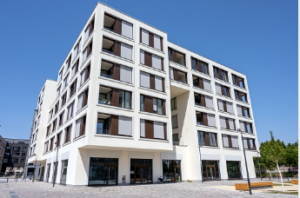Studio apartments can be an ideal option for single renters or couples looking to live near popular downtown areas and tend to be less costly and easier to clean than their one-bedroom counterparts.
Heat and lighting consumption costs can also be reduced, saving tenants money on utility bills. Some studio type apartments Orewa even utilise multifunctional furniture like couches that double as beds to maximise space utilisation.
Affordability
 Studio apartments are typically one-room units with an open floor plan that doesn’t clearly demarcate living and sleeping areas. A rectangle or L-shaped layout is most common; other variations exist as well, including square and L-shaped designs. Rugs, furniture or wall paint may help divide living from sleeping space. While some studio apartments come equipped with full kitchens, others may only include a kitchenette containing a burner stove and mini-fridge combination units.
Studio apartments are typically one-room units with an open floor plan that doesn’t clearly demarcate living and sleeping areas. A rectangle or L-shaped layout is most common; other variations exist as well, including square and L-shaped designs. Rugs, furniture or wall paint may help divide living from sleeping space. While some studio apartments come equipped with full kitchens, others may only include a kitchenette containing a burner stove and mini-fridge combination units.
Studio apartments can be the ideal way to reduce living expenses or downsize from a larger home, as they require minimal upkeep and cleaning while using less energy – saving on utility bills as well as contributing less carbon pollution. However, studio apartments might not be best suited if entertaining is important to you; their limited living/sleeping spaces could make entertaining guests awkward, particularly if more than two come to visit at once.
Flexibility
Living in a studio apartment offers numerous advantages, including cost, location and flexibility. Studios tend to be less costly than 1-bedroom apartments while still giving you access to city life and giving you freedom of decoration to suit you and your lifestyle. In addition, studios typically lack walls dividing living, kitchen and bedroom areas – ideal for minimalist lifestyles.
Privacy
Studio apartments often lack walls separating the bedroom from the living area. While this can create an open layout that feels spacious and welcoming, this can make it difficult to create privacy when guests visit; often, the bed serves as seating or even desk space, and visitors can view personal belongings and clutter surrounding it.
There are various ways to add some privacy to a studio apartment, such as installing a room divider, hanging curtains or using furniture pieces as barriers. You could also utilise small alcoves or nooks in the studio space as storage by adding bookshelves, floating shelves or stacks of upholstered ottomans as barriers between you and other tenants.
One way to increase privacy in a studio apartment is to raise the bed. Raising beds may be popular among children’s rooms or vacation homes, but raising beds in studio type apartments Orewa may also offer many advantages. A raised bed leaves more floor space available for storage, seating areas and dining while still giving some level of protection when guests come over.
If you share a studio apartment with someone significant, make sure that each of you allocates some solo time – otherwise, disagreements over personal space could ensue and leave no space for meaningful alone time.
Space
Studio apartments (also referred to as single-room dwellings or zero-bedroom apartments) combine the living area, kitchenette and bedroom into one large space; only the bathroom may exist as a separate area or outside of the main room.
Studio apartments present some drawbacks, however. One such drawback is limited storage space, which may present issues for people who have an abundance of personal belongings or work from home. Furthermore, due to their open design, they can make entertaining guests difficult as the distinction between living and sleeping areas may become unclear.
Overall, studio apartments can be an attractive housing solution for people on a tight budget or who prefer solo living arrangements. Before renting or purchasing a studio apartment, however, it’s essential to weigh its advantages and disadvantages carefully, in particular, if you have significant other(s) or children, as these types of housing units typically do not suit families well.
